September 11, 2016
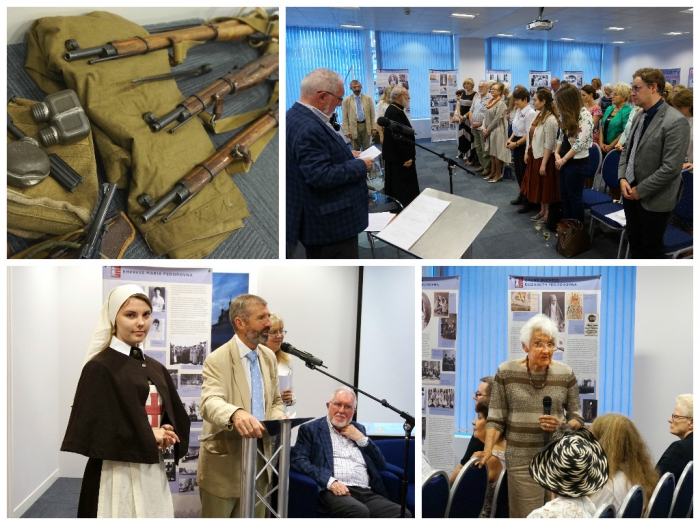
During the last week of August this year an exhibition was organised at Rossotrudnichestvo (The Russian House of Culture and Science) in Kensington, dedicated to the centenary of the First World War and to the 300th anniversary of the Russian Orthodox presence in Great Britain. It was entitled "Members of the Russian Imperial House during the First World War: Charity and Heroism," and was organised by the Society of the Grand Duchess Elizabeth Romanov UK together with Russian Heritage in Britain.
The exhibition opened on August 25 and began with an address from Archbishop Elisey of Sourozh which emphasised the importance of remembering the achievements of the House of Romanov.
Paul Kulikovsky-Romanov, direct descendant of Alexander III and great-grandson of Grand-Duchess Olga Alexandrovna, sent an address which was read out, in which he referred to the many episodes of Russian-British co-operation during the First World War, especially in hospital work.
The representative of the Russian Society of Postcard Collectors, Galina Panova, was a special guest and showed us their newly published four-volume collection of World War I postcards.
The Embassy of the Russian Federation kindly allowed the display of a fascinating collection of medals and decorations awarded to British subjects for valour during the First World War.
John Harwood spoke about the part played by several Romanov princes on the front line, including the Emperor's own brother, Michael Alexandrovich and his cousin Dimitry Pavlovich, and described the little-known exploits of the Konstantovichi princes – who later suffered together with the Holy Martyr Elizabeth.
Using archival material, postcards and photographs, the exhibition illustrated the self sacrifice and compassion shown by many members of the Russian Imperial family towards those who suffered from the effects of that war, both at the front line and at home. The Emperor Nicholas II and his immediate family took a leading role in this service, with the women working as trained nurses for the wounded. Other members of the Imperial family also went to the front line and served under fire. Some, such as the Holy Martyr Grand Duchess Elizabeth, remained at home to serve the needy, especially, in her case poor families and orphaned children.
The exhibition was enlivened by the presence of some First World War weaponry, including a Maxim gun, and by a Red Cross nurse in full uniform.
The showing of a wonderful documentary film on the life and death (in battle) of Prince Oleg Konstantinovich followed and the evening concluded with a talk about the great Russian victory of 1916, the Brusilov Offensive, by Sergei Saveliev, who had brought the weapons.
To close the exhibition on September 1 there was a concert provided by members of the choir of the Cathedral under the direction of Marina Bezmenova-Nicolaou and Dmitry Tugarinov, of Church music, Russian and Serbian soldiers' songs and romances of the First World war period, including settings of Russian poetry. Between the choral items there were readings from the memoirs of the Grand Duchesses Olga Alexandrovna and Maria Pavlova describing their experiences near the front.
The evening ended with a piano concert by Alexei Knupffer, featuring Rachmaninoff as well as pieces of his own composition. He also told the fascinating story of his grandfather, an admiral of the Russian Imperial Navy, and sometime commander of the Emperor's own yacht the Shtandart, who died in London in 1954.
It is the intention of the Society that this exhibition should now be shown in other venues around Great Britain as a contribution towards the celebration of these important anniversaries and to assist in better understanding of the role of the Imperial family in charitable work during this most difficult of times, one hundred years ago. The hope is that this greater understanding will contribute in some small way towards the improvement of relations between Russia and Great Britain.
This exhibition was made possible with the help of historical research by members of the St. Tikhon's Theological University and other members of the Grand Duchess Elizabeth Romanov Society, both in Britain and in Moscow.

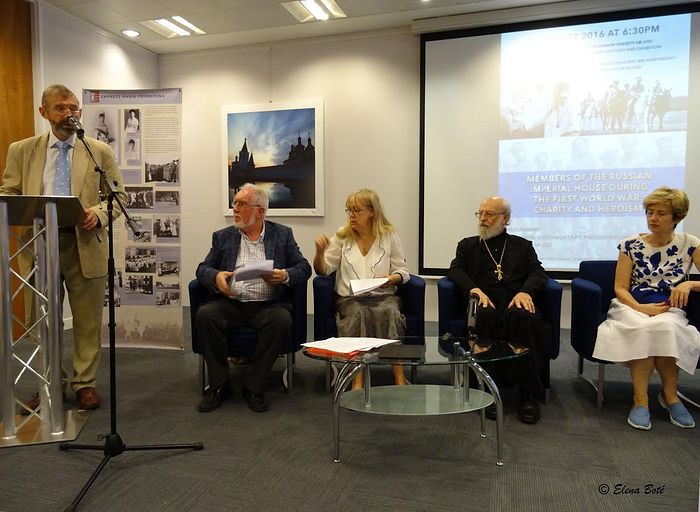
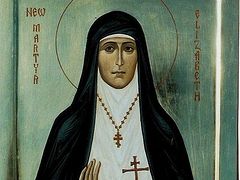
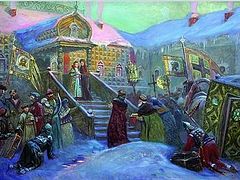
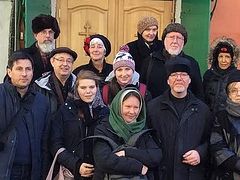
Thank you for the interesting exhibition organized in London about the WWI links between Russia and the UK. Although I could not attend I realize the importance of remembering and then improving the links and co-operation between our two countries as shown then. Not to do so means forgetting all the efforts of those involved which were intended for us to build on and so improve relations between our peoples which is even more important today.
Perhaps there are ways to make the need for a closer relationship between us as families more visible educationally in both our countries, possibly by better communication with educational projects between us. I am sure we are able to find ways to do this and perhaps ideas to achieve this can be sent to you for consideration.
Many thanks again for reminding us of our common historical heritage and so of what we might achieve together to improve the understanding between our following generations.
With many thanks and best wishes, Michael Wade.